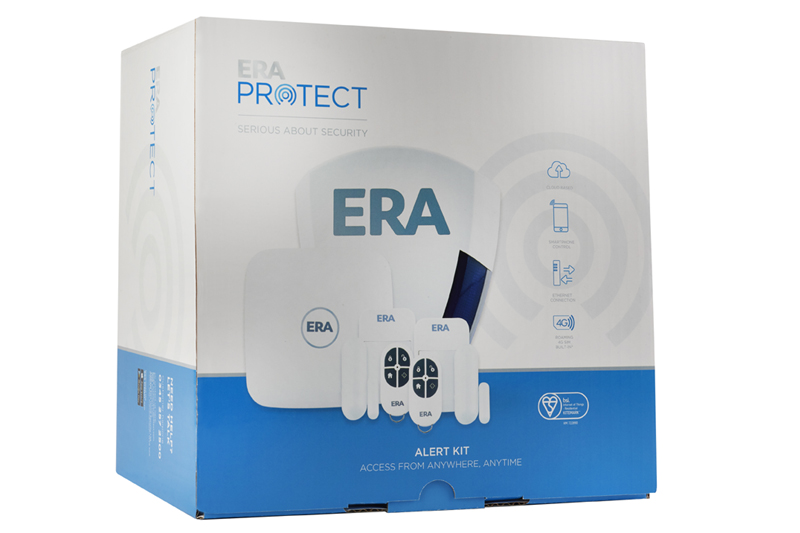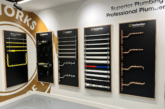
The European smart home market continues to go from strength-to-strength, with smart security solutions representing one of the biggest areas of growth throughout 2021. PBM spoke with Chris Burrows, Head of Sales — Distribution and Smart Security for ERA, to discuss how merchants can capitalise on the increasing popularity of app-controlled security systems.
Q) Advances in connected home technology are continuing at a rapid pace. How can merchants stay ahead of the curve?
A) Smart devices have become increasingly commonplace in UK households, as individuals use a wide variety of connected products to automate aspects of their daily routines and manage specific areas of their properties. From smart speakers like Amazon Echo and Google Home to smart security, heating and lighting, consumers are embracing the convenience of virtual assistants and app-controlled devices.
To put this growing trend into perspective, Government-published research from December 2020 identified that over 50% of UK residents reported an increase in household use of connected devices throughout the pandemic.
However, the rate at which connected technology is developing and being used is much faster than the regulations and standards needed to protect end-users. For many individuals, data security and user privacy can be a consideration when purchasing app-controlled products, such as video doorbells and cameras, where personal details and recordings are stored by the manufacturer.
Whilst regulations regarding the cybersecurity of Internet of Things (IoT) products are expected to be implemented later this year, merchants can take a proactive approach now and provide customers with the confidence that both their data and their property will be protected to the highest standards.
This can be accomplished by stocking smart security solutions that have been independently certified as cybersecure.
Q) What types of certification should merchants be aware of with regard to smart security products?
A) In 2018, the UK Government reviewed the basic cybersecurity provisions of over 330 internet connected device manufacturers supplying the UK market. Over 90% did not possess a comprehensive vulnerability disclosure programme and did not build the necessary security requirements, such as using unique credentials, into their products.
To overcome this and set an industry benchmark for the performance of smart security products, ERA has worked in close collaboration with the British Standards Institution (BSI) to develop the BSI Kitemark certification for IoT connected devices.
Launched in 2018, the Kitemark provides independent verification of the cybersecurity of camera and alarm systems and goes above and beyond the requirements of pending government legislation. It establishes a standard for best practice and removes the burden from merchants and professional installers to ensure the systems they supply; purchase and install are cybersecure. Instead, manufacturers must prove this by putting their smart security systems through rigorous data security testing.
By stocking Kitemarked security systems, merchants can provide customers with the confidence that the products they purchase offer the very highest standards in protection, not only for their property, but for their personal data.
ERA’s smart security ecosystem, ERA Protect, was the first — and remains the only — smart security system to carry the BSI Kitemark certification for IoT connected devices, having achieved the Kitemark in 2019 due to its bank-level data encryption and UK owned data server.
Q) What are the benefits of modular security systems?
A) From tech-savvy individuals looking to incorporate additional technologies into their homes, to customers taking their first step towards a connected home, the smart home market encompasses a diverse audience.
Whilst stocking multiple product lines from different manufacturers to cater for these varying requirements is an option, merchants can also benefit from offering modular smart security systems. They allow customers to buy into a smart ecosystem, either on a one-off basis with a standalone product that fulfils a specific role, or the initial purchase can act as a steppingstone to real cross-selling opportunities.
For example, the ERA Protect ecosystem includes an alarm hub, which can be paired with up to 96 PIR sensors, sirens, keypads and other accessories, in addition to a smart video doorbell, indoor Wi-Fi camera and two outdoor cameras.
The devices can be purchased individually and operate autonomously to fulfil a specific function. However, they can also be wirelessly interlinked to form a modular ecosystem that can be continuously updated and extended to support homeowners in protecting every area of their property.
Click here for further information on ERA’s diverse portfolio of security products, including ERA Protect.
ERA designed and manufactured its first lock in the West Midlands in 1838, and now operates from its purpose-built 135,000 sq. ft headquarters — housing manufacturing, R&D, product development, test and training facilities — which opened in 2017 at the prestigious i54 site in Wolverhampton.
The company states it delivers “a total security solution for windows and doors”, supplying a comprehensive range of mechanical, decorative and panic hardware, and smart security systems with its Total Security Guarantee recognised by Neighbourhood Watch.
A version of this article appeared in the October edition of PBM. Click the link to read the full digital version of the issue.









